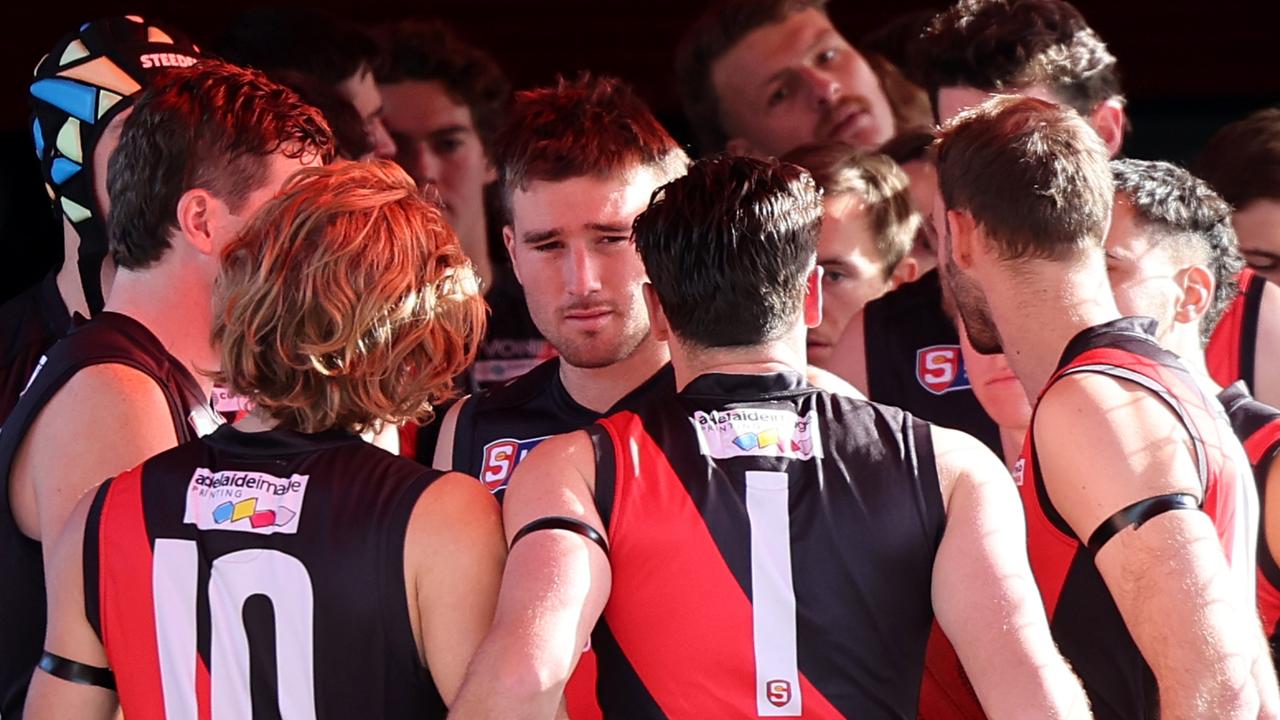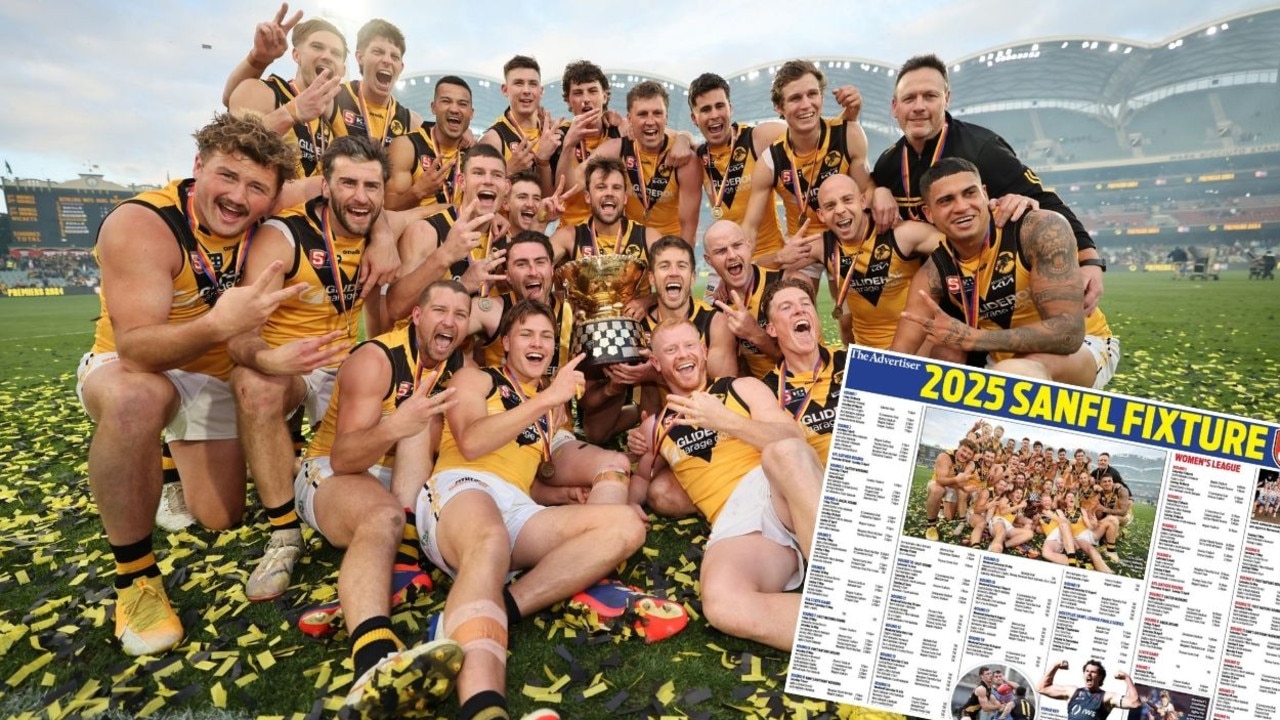Glenn Elliott taking care of business at Glenelg after lifting North Adelaide
Life as an SANFL chief executive has been a challenge for Glenn Elliott, but he has helped North Adelaide and Glenelg achieve financial survival.
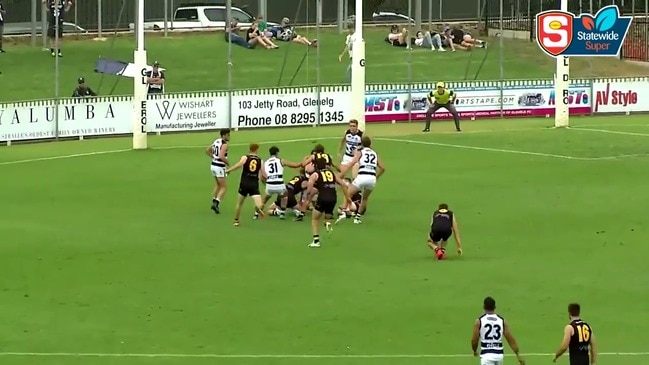
SANFL
Don't miss out on the headlines from SANFL. Followed categories will be added to My News.
Glenn Elliott walked past the vacant reception desk and up the stairs at the North Adelaide Football Club.
He had taken on the imposing role of chief executive with the Roosters and the first person he bumped into at the top of the stairs was Julie Francou, sister of club legend Barrie Robran.
Asked if there was anything she could help him with, Elliott responded: “hopefully an office”.
These were dark days for the once-mighty Roosters, the lack of reception personnel a reflection of an empty wallet. To describe the future as bleak was an understatement. Extinction was possible.
Sitting in his far-from-fancy office at the Glenelg Football Club in his current role of CEO of the Tigers, Elliott reflects on 2002 and recalls two moments in those early days at Prospect Oval deeply entrenched in his memory.
The players knocked back match payments for a round so the club could purchase footballs. Current Adelaide state league coach Heath Younie was among those players and Elliott said the former Roosters star continues to remind him.
Then there was his first meeting with former prominent Roosters identity Robert Gerrard.
“I was with (then Roosters president) Bohdan Jaworskyj and Rob’s opener remarks were ‘how much did we lose this year’,” Elliott said. “I remember saying to Bohdan as we walked out,
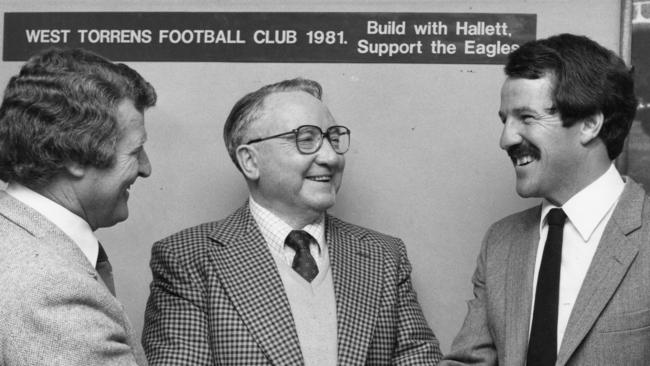
‘I’m never going to see that bloke again without making money’.
“History shows we never went back without making money. But it was really difficult for the coaches and incredibly difficult for the players. There was no certainty of match payments and no investment in infrastructure.”
The buzzards were circling above Prospect Oval.
Less than three years ago, those buzzards had migrated to Brighton Road ready to feast on the Tigers’ carcass.
Elliott had walked into another financial minefield. There was the $2.3m debt to the Holdfast Bay Council, the club owed $1.2m to the ANZ for its bistro and a $571,000 loss was announced for the year ending October 2015.
Fears the doors at the Tigers would be shut forever were real. The immediate answer was the Save the Tigers debt demolition campaign in 2016 in a desperate bid to stave off the executioner.
In many cases, it was a cash before delivery scenario with suppliers.
Elliott has been described as ruthless, he prefers to use the word fair. He has refused to back down from the hard calls and he has never lost faith because of his passionate belief in the product.
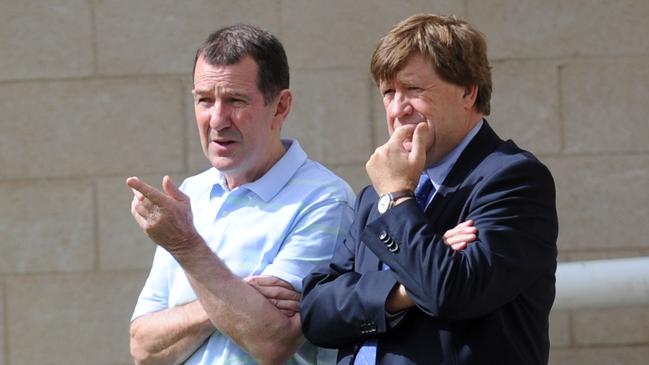
“There was no choice but to be ruthless,” Elliott said. “The financial situation at Glenelg was dire, extremely dire,” he said. “The first year for me here was difficult, no question about that.
“CEOs are not popular in that environment because decisions have to be made. Success is never lonely, but making decisions is. We were forced to make decisions.
“You don’t measure your involvement in sport by hours, but outcomes. Nobody wants to hear you work 70, 60 hours a week. They don’t care, they just worry about the bottom line.
“The two barometers are being successful on the field and financially sound, they drive me the hardest. If you don’t get them right you will have falling membership, less people at the football and a future threatened.
“If you surround yourself with really good people you can have higher trust and low control. That means working with good people who understand the challenges.
“If you lose your enthusiasm for the game you cannot work in football, it is not just a job.”
The Roosters lost three court cases attempting to push the door open into the lucrative gaming market. The club went to the single bench supreme court and full bench before lodging an appeal with the high court, even flying a Sydney QC to Adelaide for a 20-minute appearance, only for him to tell the club it had no national implications so it lost.
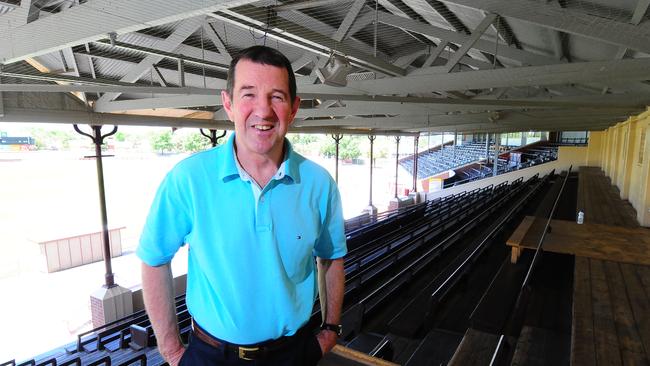
There was the protest march down Main North Road from Sefton Park to Prospect Oval with rival clubs involved. Gerrard and former politician Jane Lomax-Smith were in the throng making a stand for the club.
Meetings with then premier Mike Rann followed, parliament heard a presentation on behalf of the club at 3am one morning and the Roosters were given a stay of execution to find another location for a gaming venue.
It was the birth of the highly successful Grand North at Greenaces Football Club on Grand Junction Road.
But still the fighting club had to confront legal threats.
“The owners of the Northern Tavern informed us we were breaching a decision and the consequences may be a fine or stay in gaol for myself,” Elliott said.
“I informed them, straight faced, my wife would not tolerate that. I made the suggestion they sell their licence to the club and that is how North Adelaide assumed control of the hotel even though we were financially challenged at the time. And that is an understatement.
“We secured our creditors and loans and to the credit of the club, there was no waste and it embarked on debt reduction that has served it well until this day.”
Elliott was the driving force.
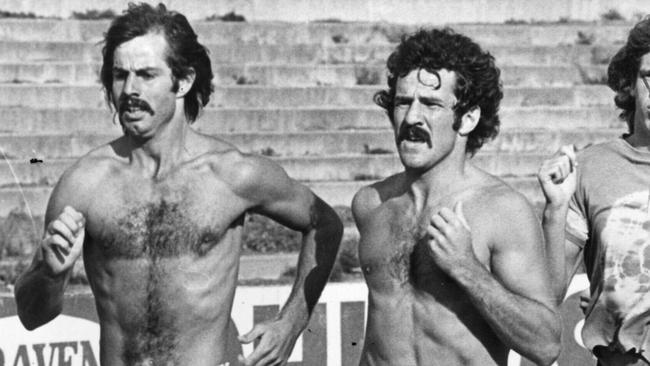
The Tigers’ financial plight dated back to 2001 when they borrowed heavily to fund the function centre. They were building on council-owned property in an area with a highly competitive hospitality industry market and the trade failed to match the business expectations.
The club was simply servicing debt, according to Elliott, and was unable to invest in infrastructure.
“North was facing extinction and like wildlife, that is forever,” Elliott said. “Here and at North in those early days we were in a position where 100 per cent of things had to go 100 per cent correctly 100 per cent of the time.
“And anything which doesn’t became a major hiccup. That is the tight rope and a difficult one to walk on. Each day I come to work, I don’t have to justify it, I believe in the product.
“I can still hear Gerrard’s word today, ‘how much did we lose this year’. We have to make an authentic cash profit, no creativity. It has to be hard, cold cash.”
Elliott played 138 games for St Kilda and won the best and fairest award in 1974, before making 15 appearances for Melbourne. He was named in the Saints’ Hall of Fame in 2016. Four times he represented Victoria and such was his talents, earned the Simpson Medal for his best-on-ground performance against Western Australia in 1976.
He moved to South Australia to play with the Port Adelaide Magpies then coached West Torrens. This is his second stint as Glenelg CEO, having been with the club from 1993-97.
While his football history is traced back to Victoria, his passion and devotion to the SANFL’s state league never wavers.
That has never been more evident than his three years at Brighton Road and Elliott’s influence has been crucial. That light at the end of the tunnel is becoming brighter as faint black figures replace the bright red in the financial statements.
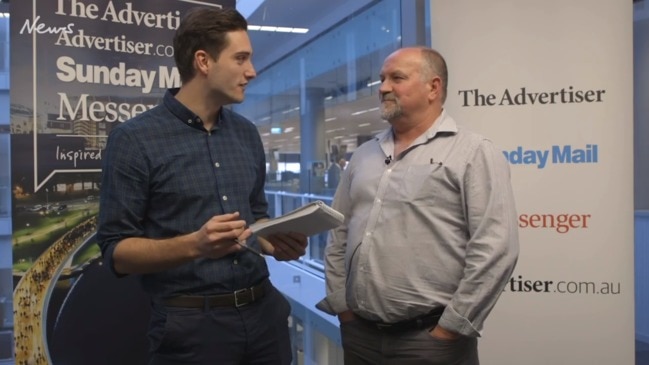
SANFL funds from the sale of Football Park have gone directly to debut reduction. Off field, the Tigers are have climbed a couple of floors from the basement and now on-field success is the mission to fully revive the club.
Elliott does not seek pats on the back. He emphasises his job had been made easier by the enthusiastic support of Jaworskyj and Tigers president Nick Chigwidden.
Then there is Lois, his wife as a player, coach and administrator. Her role cannot be understated, he claims.
“Lois has been around football for a long time and I’m so fortunate she understands the nature of the beast and the times I have got to be committed,” Elliott said.
“All those years in sport, sometimes you feel you are going up Mt Everest on rollerskates. But if you achieve things along the way you can steady the ship.
“First thing is not to lose money and you have got to fix one thing at a time. You can’t put a bandaid on it and think it will go away.
“The board has been amazingly resilient. They all crave more success, but you have got to get your structures right and be definite in what you are going to achieve.
“You have a must-do list and like-to-do list and the must-do list takes priority. It can be very lonely in a football club, but you have got to have the courage of your convictions and think long and hard before you act.”
ELLIOTT PUSHES COMMUNITY BENEFITS OF SANFL CLUBS
Glenelg chief executive Glenn Elliott has challenged the SANFL to instigate a study on the economic benefits of its state league clubs.
Elliott is keen for the SANFL to commission the South Australian Centre of Economic Studies to do a report on the eight traditional state league clubs to reveal their economic worth to the community.

“After every major event such as the Tour Down Under or Supercars, the state government talk about the economic benefit to the state,” he said.
“What about the economic benefit of an SANFL club to its community? It has been largely overlooked.
“These clubs are not just a place where football is played on Saturday afternoons. We have been here since 1929 and the people who own us are the members.
“We employ 40 people who live in the area.”
Elliott heaped praise on the City of Holdfast Council for its tremendous support of the club, especially during its financial crisis, and said the club had to be a really reliable tenant.
He noted all clubs had had their moments, even Port Adelaide carried cans down Port Road seeking financial help.
“West Torrens was a proud club which disappeared because of financial challenges,” Elliott said. “It is a less forgiving world now, the banks are less forgiving and the economic circumstances have changed.
“Imagine driving down Brighton Road and this building was empty.”

